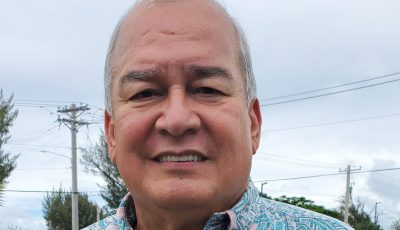Puerto Rico’s fiscal crisis
It’s of special interest how the U.S. Congress disposes of Puerto Rico’s bankruptcy strapped by some $72 billion in deficit. It has gone on a three-week vacation and won’t return until the first part of July. Meanwhile, Puerto Rico defaults on a $2 billion payment last week.
It’s obvious Congress isn’t ready to grant it a bailout, meaning an infusion of U.S. taxpayers’ money. Some even quiz why extend the earned income tax credit and child tax credits when Puerto Rico isn’t filing personal federal income tax returns.
Reading the arguments against a bailout, you localize it weighing annual revenues (there may be spikes but no gravy train either) versus the mountain of debts in our books. How far do we spend beyond our means?
It’s the loose attitude on the real responsibility of self-government from mendicant elected officials that is most troubling. They simply never had the vision and depth to put together a fully thought-out economic plan to reboot growth. Spouting “self-government” seems sufficient that all is well. With a deficit of some $572 million and other ignored debts in the millions? Save some for that rainy day, e.g., a health crisis or need for toilet tissues in public schools!
Disposition of an increase of some $33 million in revenue for the impending fiscal year warrants cautious spending of scarce financial resources. The NMI’s obligations are way beyond what’s accruing to the local coffer. No wiggle room for wasteful spending!
It’s important to note though the parallel action taken by the U.S. Congress versus Puerto Rico and the NMI. It killed the pharmaceutical and medical equipment industries in Caribbean territory and the apparel industry here. Both were shackled and in serious fiscal straits since. It brings into focus national policy that trashes tiny economic success in territories in favor of its backyard industries supported by labor unions.
The deficit of $572 million plus $779 million the NMI owes the retirement program should jolt the senses of the elected elite on the hill! To dig a bigger and wider hole that kills opportunities is to force the evacuation of our people to Guam and the U.S. mainland.
—
The NMDism Syndrome: The ideology (NMDism) surfaced in the flea market of ideas that stirred lively views from both sides of the spectrum. It found some agreeing, others disagreeing, still others, indifferent.
Understandably, it’s a difficult issue to unravel in a single discussion. It deals with identify, landownership, a way of life, self-rule amidst the powerful hands and influence of imperialism, among others.
The issue splits the community between status quo and nationalists. The former prefers the present arrangement based on the supreme law of the land (founding principles under our national constitution) while the latter wants greater self-rule as permanent hosts. It’s neo-colonialism versus indigenous rights.
It’s tough navigating either side. One leads to the eventual loss of local identity under the greater American community; the other a perceptual gain piled with layers of complexity.
There’s truth to the old maxim, “Information is power.” In Guam, as more people learn of the essence of independence that promotes “passion for the truth” the more folks enlist supporting it as a political option. It’s a matter of decolonizing the mind focusing on the self. In brief, why perpetuate learning the English experience in the history of the world that eliminates our very own?
Indeed, the indigenous people now question the base versus the periphery of their fate trying to make sense of its destiny. We know that our heritage served as the foundation of our birth and existence for centuries. It’s an amalgam of failure by colonial powers to inflict cultural genocide. We’re still here and we’re preparing to forge a meaningful future as permanent hosts of these isles.
Nationalists would have to resolve island nation building by answering fundamental questions like defense of the NMI, currency system, transportation, healthcare, official language, and education, among others. No easy feat when we meet reality check.
At the sophomoric level, we spout of self-government yet negligence has led the NMI into a $572 million deficit discounting the $779 million it owes the retirement fund in employer’s contribution. Could we begin here so we put some teeth behind our spout on self-government?
Don’t repeat history: It was last year when I overheard parents complaining about the lack of toilet tissue in schools. So kids had to place a whole roll in their school bags for their use. It isn’t PSS’s fault as much as a tale of the lack of funds in the local coffers. Let’s not repeat history!
—
Patients admitted at CHC must also bring additional bed sheets and pillow from home for their use. Not CHC’s fault either! Did someone say the “solutions driven” team is near the hospital? Please, don’t repeat this humiliating history!
—
Shortsighted: Legislators decided to kill the free enterprise system approving taxes on anything that is sweet. Like Reagan once chimed, “If it moves tax it. If it keeps moving regulate it.” What about manufactured salt and all meat and canned meat products loaded with fat?
Other than sugar, did you know that at some point red blood cells go fasting in the consumption of insulin or natural sugar? It triggers diabetes! It has nothing to do with sweeteners and refined sugar. Shouldn’t this be a part of the critical review process?
We love “finadeni” using soy sauce, refined salt, aji-nomoto, lemon and vinegar, among others. Why weren’t these items taxed too? Canned goods have been ruled unhealthy so why weren’t they included in the tax scheme? White rice is really fattening but wasn’t taxed. You only increased taxes on things consumers would buy anyway! Kabesa?
The sugar tax is the net result of hasty policymaking tantamount to what someone dubbed a “feast of incoherence!” When would policymakers descend into in-depth study on this and other issues of substance beyond adolescent provincial wild swings?



























